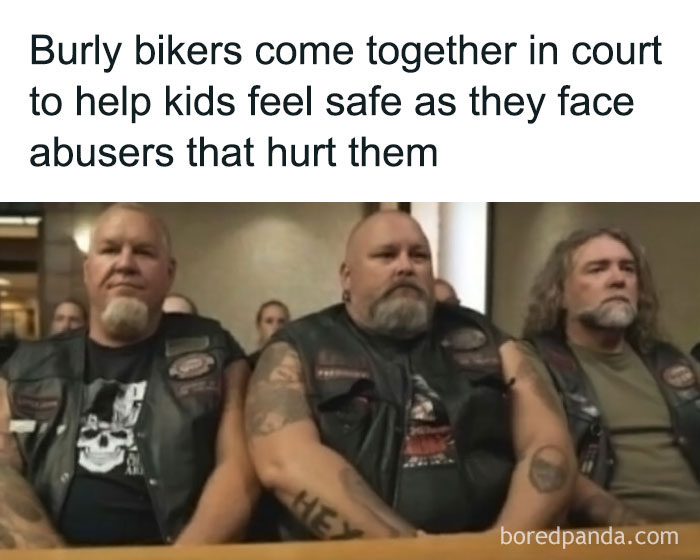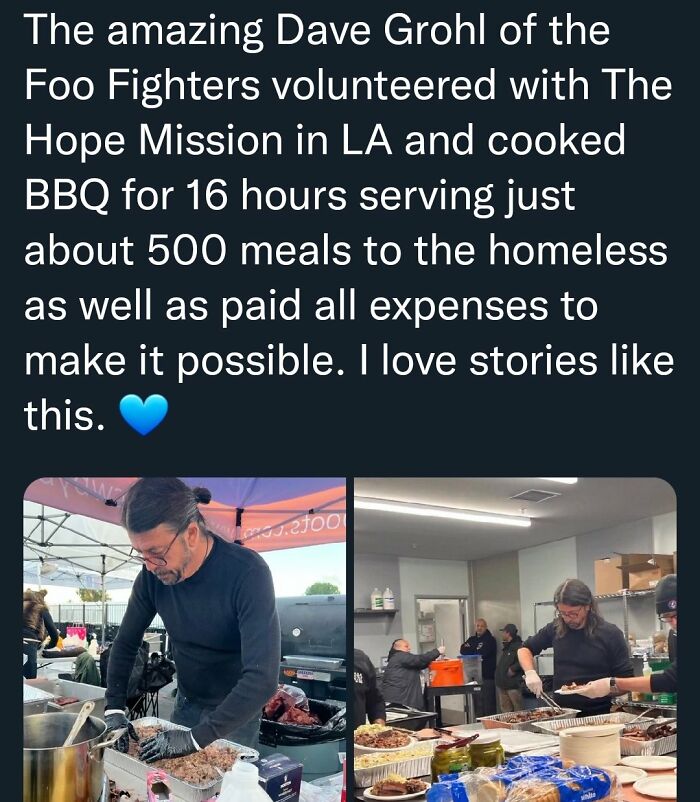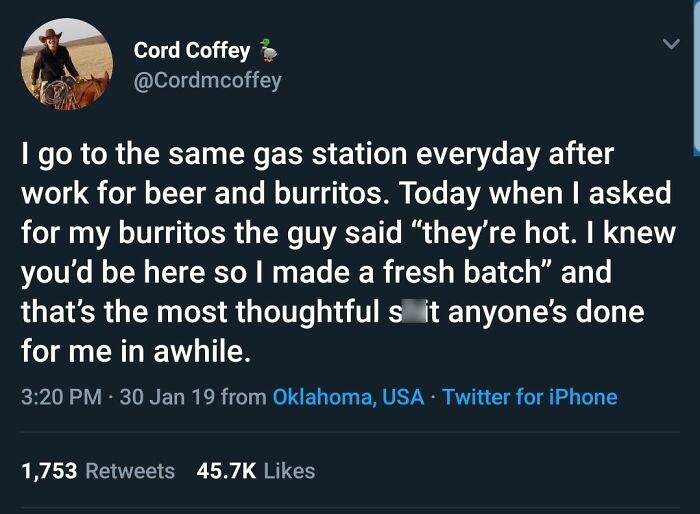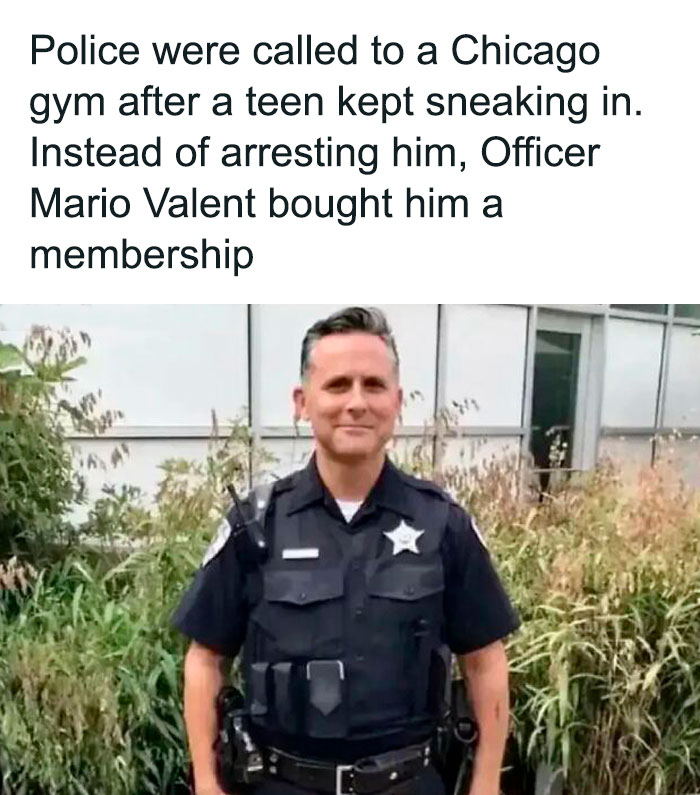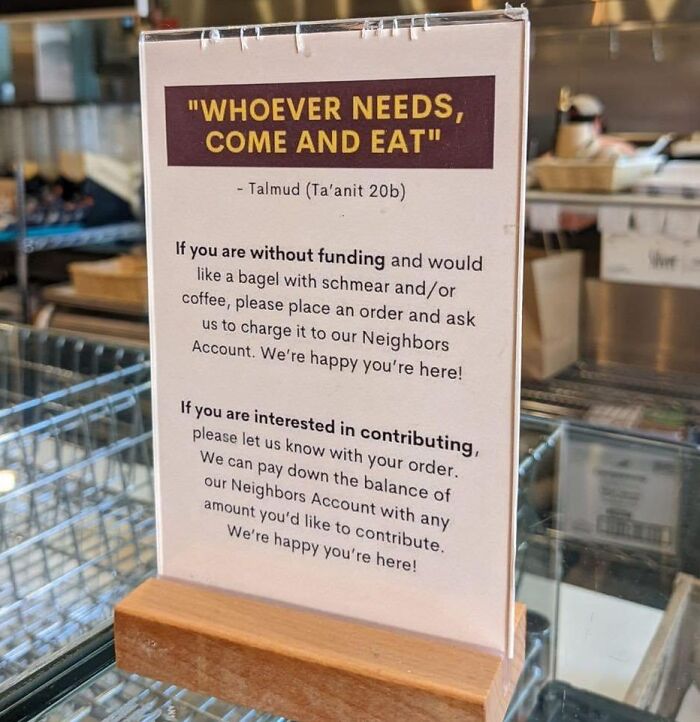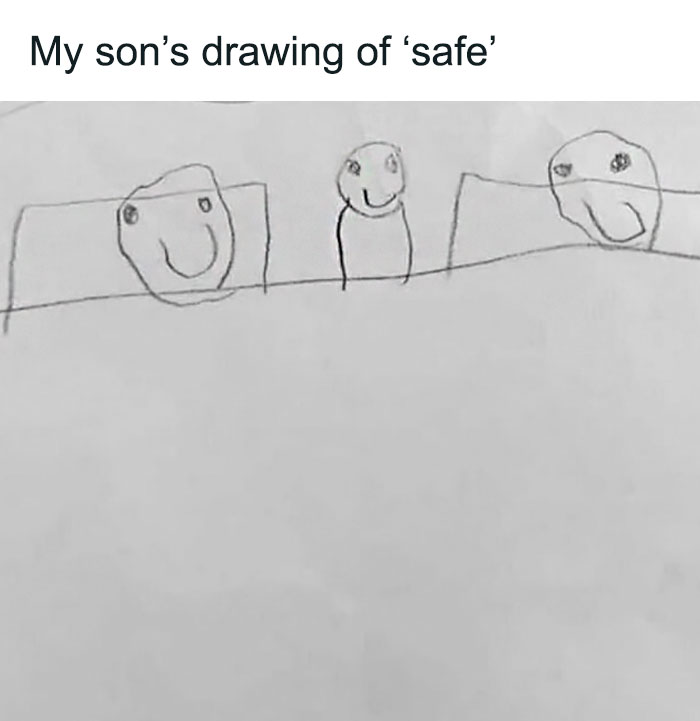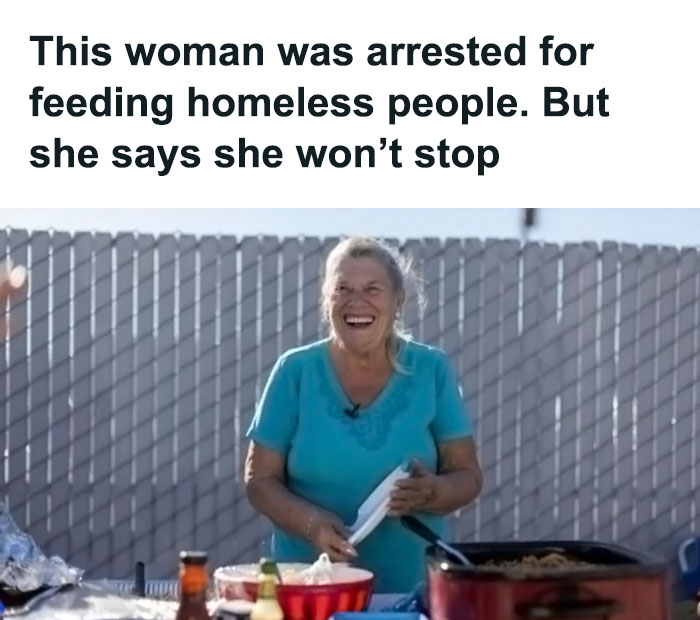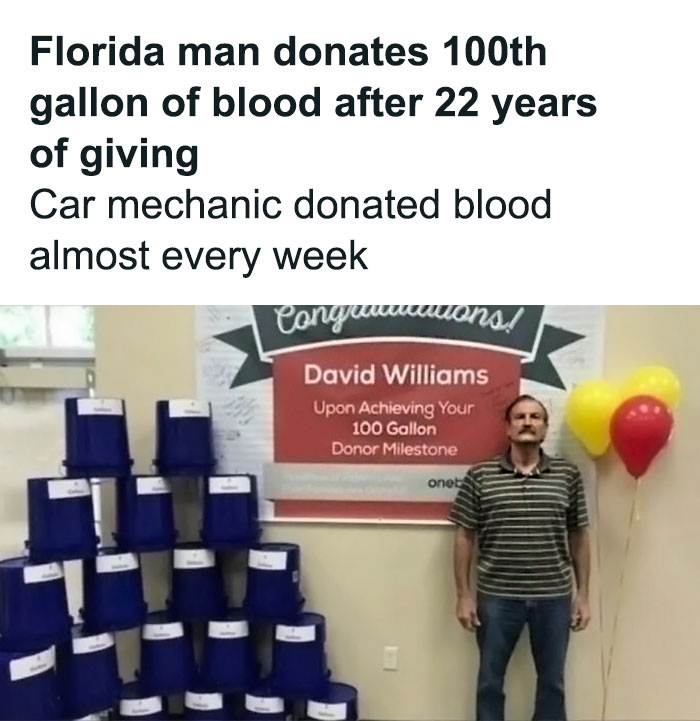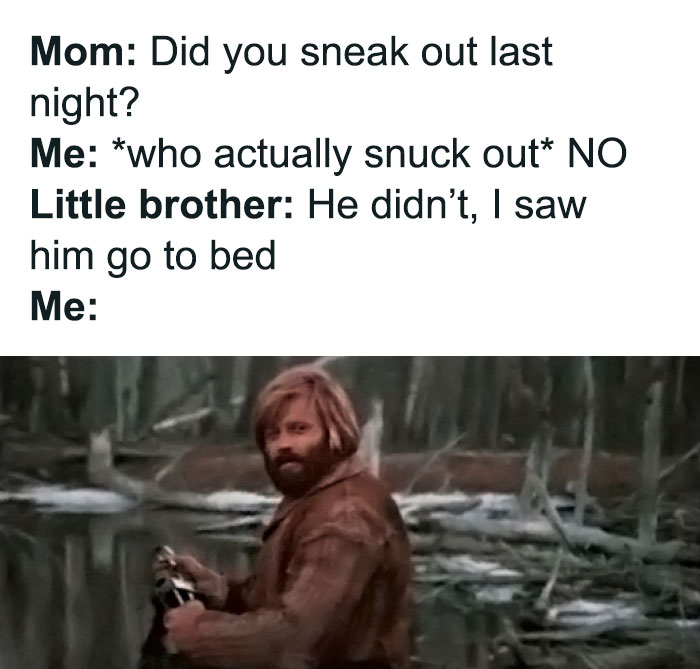
‘Bros Helping Bros’: 35 Times People Showed Just How Funny And Wholesome They Can Be
Michael Kimmel, a sociologist and the author of several books on male identity, including Guyland, Healing from Hate, and Manhood in America, thinks there's really a lot of evidence that many men are suffering.
And many other experts in the field agree, pointing out that men are dropping out of the workforce in greater numbers, their addiction rates are climbing, and they're four times more likely to commit suicide than women.
We, as a society, can't ignore these problems. These are people's lives we're talking about. And it's in everyone's best interest too, because when men can be themselves and be happy, we all benefit from it. To show you just how contagious their smiles and kind actions can be, let's take a look at the Twitter account 'Bros Helping Bros.'
This post may include affiliate links.
This happened to my grandmother, she was an army nurse in WWII. After, she worked in hospitals, then schools. But one baby was born, still, they thought. She visited the baby in the morgue, only to notice light signs of life, she resuscitated that baby, and he went home healthy with his family a while later. 20 years after that, sometime in my very young childhood, I remember she was tracked down by that, now grown man, to be thanked, profusely, for being the one person who ensured he survived that day. I always thought out of all her heroics in life, that was the most important moment in her long career saving lives, saving that single baby who everyone else had given up on. My grandma was the best, and I was always proud of her awesomeness!
Recently, scholars and the media have been suggesting that the Western world is experiencing a masculinity crisis. However, semantics matter and we may have been approaching the matter from a wrong angle.
Michael Salter, who is a Scientia Fellow and an associate professor of criminology at the University of New South Wales at Sydney currently serves on the board of directors for the International Society for the Study of Trauma and Dissociation.
He agrees that masculinity can indeed be destructive. However, Salter believes that both conservative and liberal stances on this issue commonly misunderstand how the term toxic masculinity functions.
"When people use it, they tend to diagnose the problem of masculine aggression and entitlement as a cultural or spiritual illness—something that has infected today’s men and leads them to reproachable acts," Salter wrote. "But toxic masculinity itself is not a cause. Over the past 30 years, as the concept has morphed and changed, it has served more as a barometer for the gender politics of its day—and as an arrow toward the subtler, shifting causes of violence and sexism."
"Despite the term’s recent popularity among feminists, toxic masculinity did not originate with the women’s movement. It was coined in the mythopoetic men’s movement of the 1980s and ’90s, motivated in part as a reaction to second-wave feminism," Salter said.
"Through male-only workshops, wilderness retreats, and drumming circles, this movement promoted a masculine spirituality to rescue what it referred to as the 'deep masculine'— a protective, 'warrior' masculinity—from toxic masculinity. Men’s aggression and frustration was, according to the movement, the result of a society that feminized boys by denying them the necessary rites and rituals to realize their true selves as men."
Salter explained that this claim of a singular, real masculinity has been roundly rejected since the late 1980s by a new sociology of masculinity.
"Led by the sociologist Raewyn Connell, this school of thought presents gender as the product of relations and behaviors, rather than as a fixed set of identities and attributes."
"Connell’s work describes multiple masculinities shaped by class, race, culture, sexuality, and other factors, often in competition with one another as to which can claim to be more authentic. In this view, which is now the prevailing social-scientific understanding of masculinity, the standards by which a 'real man' is defined can vary dramatically across time and place," he explained.
I have fix my broken relationship with my father. He may have a few flaws, yet he always there for me when I needed
His niece will worship him forever and on that day when they have to stand up in class and tell the room who is their hero, you know who she is going to name
When I was 24, I was homeless in a city with a high sexual assault rate. I would go to the library every few days and look for real estate listings for vacant houses in the area with fenced in yards. I would then sleep in one of the yards to hide myself from the crazies. I never went into the home or used the utilities. I kept to the yard and patio. Unbeknownst to me, a police officer had followed me a few times and saw me climbing over a fence. He stopped me one night as I was about to make my climb. Instead of arresting me, he took me to his home and gave me a safe place to sleep. He and his husband also sold me a 15 passenger van for $1000 and helped me convert it into a camper van. I lived in that van for three years and loved it. I still have it 15 years later.
Connell and others theorized that common masculine ideals such as social respect, physical strength, and sexual potency become problematic when they promote unattainable standards, since falling short can make boys and men insecure and anxious, which might prompt them to use force in order to feel, and be seen as, dominant and in control.
"Male violence in this scenario doesn’t emanate from something bad or toxic that has crept into the nature of masculinity itself. Rather, it comes from these men’s social and political settings, the particularities of which set them up for inner conflicts over social expectations and male entitlement," Salter continued.
By the mid-2000s, despite Connell’s objections, her theories were being portrayed in ways that echoed mythopoetic archetypes of healthy and destructive masculinity.
In a 2005 study of men in prison, the psychiatrist Terry Kupers defined toxic masculinity as “the constellation of socially regressive male traits that serve to foster domination, the devaluation of women, homophobia, and wanton violence.”
i love this initiative but i also know that some entitled people will misuse this
Referencing Connell’s work, Kupers stated that prison brings out the “toxic” aspects of masculinity in prisoners, but that this toxicity is already present in the wider cultural context.
Since then, the return to toxic masculinity has leaked from academic literature to wide cultural circulation, and the reason is understandable. It offers a simple diagnosis for gendered violence and masculine failure.
"New proponents of the concept, sometimes unaware of its origins, tend to agree that men and boys are affected by a social 'sickness' and that the cure is cultural renewal—that is, men and boys need to change their values and attitudes," Salter wrote.
Yes, research consistently shows that boys and men who hold sexist attitudes are more likely to perpetrate gendered violence. But where do these sexist attitudes come from?
Are men and boys just the victims of cultural brainwashing into misogyny and aggression, requiring reeducation into the 'right' beliefs? Or are these problems rooted more deeply, and created by the myriad insecurities and contradictions of men’s lives under gender inequality?
"The concept of toxic masculinity encourages an assumption that the causes of male violence and other social problems are the same everywhere, and therefore, that the solutions are the same as well," Salter said.
But material realities matter. "In one Australian Aboriginal violence-prevention program that I evaluated with colleagues, Aboriginal educators worked in partnership with men and boys to identify the key drivers of gendered violence and inequality. Solutions were rooted in cultural pride, tailored to local contexts, and underpinned by recognition of the intergenerational impacts of racism and trauma," Salter said. "The program understood that masculinity itself isn’t toxic, and instead sought to understand and change the roots of toxic gendered behavior."
It's all about keeping people desperate enough to do anything for money. Keeps our attention away from the takers doing this to us.
Yeah, this is proof that the little boys in grown men never fade away, they just make way for the responsible fella sharing the body to do his thing when needed. However, when the opportunity arises, WEEEEEEEE....!!! :-)
There's a cafe in my area where if you bring your dog they give you a free dog biscuit. So I took my dog there on his birthday and told the waitress "and a biscuit for him because it's his birthday!" Imagine my surprise when my food came with, not a dog biscuit, but a big shortbread cookie plus a takeaway container full of water. It was only later that I realised what had happened: I'd gone to the wrong bloody cafe, but they'd improvised with a free biscuit anyway, just because it was my dog's birthday. :D
Oh, to have siblings like this.... my brother: SHE DID I SAW HER DOES THIS MEAN I HAVE EXTRA TIME ON THE COMPUTER IS SHE GROUNDED MUUUUM
Please, BP, more stuff like this, and less (preferably zero) AITA/Reddit cr*p.
It’s nice to see positive content about men on BP. It seems they prefer to post negative stuff about men.
Please, BP, more stuff like this, and less (preferably zero) AITA/Reddit cr*p.
It’s nice to see positive content about men on BP. It seems they prefer to post negative stuff about men.

 Dark Mode
Dark Mode  No fees, cancel anytime
No fees, cancel anytime 







